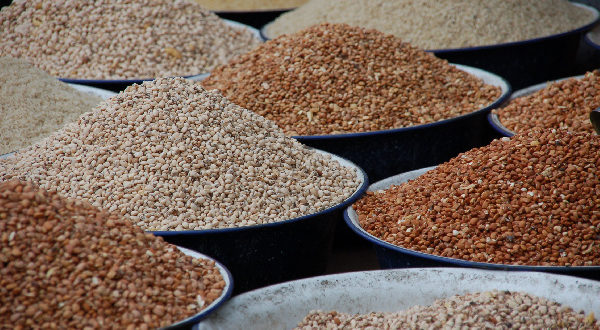The Ghana Government has extended the ban on exportation of maize, rice and soya beans from April 13, 2022 to 30th September, 2022.
In January, the President, Nana Addo Dankwa Akufo-Addo issued an Executive approval for a temporary restriction to be placed on maize and soya bean exports.
The directive was part of measures to ensure food security and increase local poultry and livestock production.
Subsequently, the Plant Protection and Regulatory Services Directorate (PPRSD) has stopped issuing phytosanitary certificates for the export of both commodities.
This follows a directive from the Ministry of Trade and Industry (MoTI) to restrict their export to ensure the availability of the produce, whose production is subsidised.
A recent statement indicated that the President has again approved extending the temporary ban on the export of grains for a period of six (6) months, effective 1st April 2022 to 30th September 2022.
On account of this directive, the Ministry of Trade and Industry said consequential action is being taken to ensure strict enforcement at all Metropolitan, Municipal and District Assemblies(MMDA’s).
MoFA further requested that the Local Government Ministry issue the required directives to MMDA’s to take the necessary action with the involvement of the District Security Councils (DISECs) to disseminate information and intensify the monitoring of trucks carting grains from market centres to neighbouring countries.
“Accordingly, we kindly request your Ministry to issue the required directives to MMDA’s to take the necessary action with the involvement of the DISECs to disseminate information and intensify the monitoring of trucks carting grains from market centers to neighbouring countries,” the Ministry stated.
Meanwhile, it urged that prompt action is taken at all times with the involvement of the security agencies to give full effect to the directive of the President.
Read the full statement below
The extension of the temporary ban on grains comes amidst the food shortage crisis as a result of the Ukraine war and a poor harvest season in the country.
Background
According to Graphic, Data available from the World Integrated Trade Solution (WITS) indicates that the export of maize from Ghana amounted to 250,147 kilogrammes (kg) in 2019.
It also reported that the export of flour and meals of soya beans from the country was 54,500kg for the same period.
Information available also indicates that Ghana imports about 200,000 tonnes of maize annually to augment the 3.2 million tonnes of local maize production yearly.
Data suggests that there has been a tremendous increase in the export of soya beans from Ghana, resulting in competition among exporters, while creating shortages of the commodity, which is used by the livestock and the poultry industries.
The shortage also leads to price hikes, which eventually make it expensive for local processing.
The production of soya bean, which is currently being subsidised by the government under the Planting for Food and Jobs initiative, is to ensure its availability for processing and use as animal feed by the domestic industry at a cheaper cost to boost local livestock and poultry production.
Source: MyGhanaMedia.com

Send your news stories to myghanamedia@gmail.com and Chat with us via WhatsApp on +233 200818719
 MYGHANAMEDIA.COM Best Source Of Latest News
MYGHANAMEDIA.COM Best Source Of Latest News




